England’s Dreaming
A look at where Gareth Southgate and this England team stand when compared to their predecessors.
England’s Dreaming
Somehow, by hook or by crook, Gareth Southgate has managed to guide his England team into Sunday’s Euros final, the second time in a row that they have reached this milestone event, and the first time that any England men’s national team have ever reached a major final on foreign soil. The question now is firstly, will they manage to do it, and secondly, whatever the result is, where will Southgate rank in the all-time list of England managers?
Despite great consistency and results better than most of his predecessors, Southgate has been almost universally lambasted for perceived negative tactics and defensive play whilst not making the most of the wealth of attacking talent that he has at his disposal. There is some merit in this viewpoint and you would imagine that a team involving such talents as Harry Kane, Phil Foden, Bukayo Saka and Jude Bellingham (not to mention all of those who didn’t even make the starting lineup or even the squad) would be able to play a brand of attractive attacking football and put other teams to the sword, but at the end of the day, victory is victory, and I’m sure that not many fans or journalists will be complaining about the poor performances at the start of the tournament if they eventually go on to victory.
Regardless of the outcome on Sunday, it cannot be denied that since Southgate took over, this England team have achieved greater results consistently than any of the teams that came before them in the previous 50 or so years. This is especially pertinent considering the state that the national team seemed to find themselves in following group stage exit at the 2014 World Cup and the capitulation against Iceland at Euro 2016. It could be argued that this is down to the wonderful crop of players that Southgate has inherited, but his squad has changed greatly over the course of his reign and we must also remember that his teams have done better than those that came before, including the so-called ‘golden generation’ that preceded them at the start of this century.
Taking a look at overall percentage of games won as England manager, Southgate sits in fourth place having won 60.4% of his 101 games in charge (correct to 10th July 2024). Top of the list is Fabio Capello with a 66.7% win rate, albeit in only 42 games. Second is Sir Alf Ramsey with 61.1% (113 games) and bear in mind that he also masterminded England’s only major victory to this point. Third, perhaps surprisingly, is Glenn Hoddle with 60.7%, although, again, he had a much smaller number of games with only 28. I have also discounted Sam Allardyce’s 100% win record due to him only being in charge for one match.
This sets Gareth up fairly favourably and it must also be taken into account that qualification and friendly games are part of this and, certainly compared to the two modern managers above him, he has had to preside over arguably more difficult ‘friendly’ games due to the introduction of the UEFA Nations League. As noted above, he has also had to maintain his consistency over far more games than many of those who came before him, barring only Ramsey and Walter Winterbottom. (Stats from myfootballfacts.com)
Things are even more in Southgate’s favour when only major tournaments are looked at. Identifying success on a points per game (ppg) basis (assuming that a win would constitute 3 points), the current manager sits joint top of the list alongside Sir Alf with a ppg record of 2.08. This looks even more impressive when we consider that Southgate has taken charge of more than double the major tournament games - 25 to Ramsey’s 12 matches. When looking at only managers who have taken charge of more than 10 major championship games, only Ron Greenwood with a 1.88 ppg average and Sven Goran Eriksson with 1.71 come anywhere close. (Stats from transfermarkt.co.uk)
Certainly, Southgate has created a team that is more confident in their own abilities when it comes to the knockout stages at major tournaments, although it could potentially be argued that he has had more favourable opponents than some of those that came before him. Of the current top 10 in the FIFA rankings, the only teams that Southgate’s England have beaten in a knockout match are are the Netherlands (currently 7th) the other evening. Denmark were also ranked 10th when England beat them in the semi-finals in 2021. A victory over Germany in that same year was impressive given the history, but it wasn’t the most intimidating German team of all time (and not in the top 10). Any other time Southgate has come up against top 10 competition in a knockout game (Croatia, Italy, France) it has been their point of exit. The teams that his England side have beaten in knockout football are Colombia, Sweden, Germany, Ukraine, Denmark, Switzerland and the Netherlands. Compare this to other managers - Eriksson’s England managed to beat Denmark and Ecuador in knockout matches and Venables’ team beat a Spain team who are nowhere near as strong as they are now - and it is actually quite similar. Other points of exit (excluding Iceland in 2016) were all against other teams in the top 10 of the rankings at the time that fans would probably have expected England to struggle with anyway.
As I have said before though, you can only beat the teams that are out in front of you, and that is exactly what Southgate’s England side have achieved. What he has done is help to foster a winning mentality that possibly wasn’t there in the past which means that, in knockouts at least, they have managed to get by the sides they would expect to and, even when they do face bigger sides, they are expecting to play well and to win. Even in defeat against France at the World Cup in 2022, England put in a good performance, and were only knocked out after the usually unflappable Harry Kane missed a penalty.
Speaking of which, Southgate seems to have put the spot kick hoodoo to bed somewhat as well. Before facing Colombia at the 2018 World Cup, the men’s England team had only ever won one competitive shootout (in the quarter final against Spain at Euro ‘96) and were on a run of four successive defeats. They beat Colombia on penalties that evening and have then gone on to defeat Switzerland by the same method twice (once in the Nations League and once at this tournament). Even the agonising defeat to Italy on spot kicks in the Euro 2020 final seems to have been met with positive action, rather than the internal dwelling which seems to have happened in the past, evidenced by the manner in which the penalties were taken against the Swiss last Saturday. It never felt like any of the players were going to miss.
Much has also been made this week of the slice of luck that England got with their controversial penalty decision against the Netherlands. They may have got the rub of the green on this occasion but it is also true that things haven’t always gone in their favour in this light in the past with examples such as Maradona’s ‘Hand of God’, Campbell’s disallowed goal in 2004, Ronaldo’s wink in 2006 and Lampard’s disallowed goal in 2010 coming to mind, so they might have been due a bit of luck. In fact, the last time an official’s decision went their way to this extent involved a certain Russian linesman in 1966 so perhaps it is destined to be their time this year as well.
We have shown that Southgate’s record both overall and at major tournaments stands up to any of England’s previous managers (apart from actually winning a major) and that he has guided his team in how to win knockout games, even if the previously dreaded penalty shootout becomes a factor. So what then is the issue that is stopping his team and himself from being lauded and praised for continued impressive results?
One argument says that a portion of English supporters, and particularly the press and a vocal selection of pundits, would not be happy whatever the team did. Before each tournament, the team are built up as world beaters who should glide through without any issues whatsoever but when there are inevitable bumps in the road, the first thing that happens is that they are ripped apart, whether that be based on individual performances or errors, tactics, or anything else. An example of this is earlier in this tournament where, despite getting the results they needed to progress, they were being criticised from all angles due to the style of their play (more on this soon). I wonder if the French or Belgian press did this to the same extent with their own teams who were also not performing to their potential at that stage? It’s not entirely clear where these expectations come from either based on results from the past, and it is this more than anything that irks supporters from other countries who tire of the perceived English grandstanding. Perhaps it really is as simple as the fact that people, particularly football fans, like to moan.
There is potentially even an argument to be made that winning the World Cup in 1966 was the worst thing that has ever happened to English football as it established a set of expectations that were impossible to live up to. Even with the rise of the Premier League to be arguably the best domestic competition in world football, this doesn’t guarantee that it is English stars who are making it this way and, in fact, with the global nature of football these days, it is less likely that this will be the case. You only have to look at people such as Jason Sancho and Jude Bellingham to see that young English players can actually garner more success away from home although there have of course been many other wonderful home-based English players over the years too.
The second issue is linked to the players that Southgate actually chooses to have playing for him. In the world of international football, I have always been a firm believer that the best sides are made up not necessarily of the best individual players, but of the players that are most suitable so that the best team can be produced, whether this is based around a particular style or formation that the coach wants to play, or whether it is down to personal attributes that individuals bring. In the past, England have been guilty of trying to shoehorn players into positions, just so that they can get certain individuals into the team, case in point, the seemingly endless debate of how to fit in both Gerrard and Lampard into the same team with very little regard paid to the fact that not only were they not getting the best of these two fantastic players, but also that Paul Scholes, one of the best central midfielders of his generation, was stuck out on the left to accommodate them. As a manager, difficult decisions need to be made and unfortunately, not everyone can make it. At the end of the day, if you have a group as talented as that ‘golden generation’ of England players and can’t get the best out of them to win a tournament, then it has to come down to the system and the decisions of the manager.
The same can be said of the current England team. Southgate has a choice of wonderful players including Bellingham, Kane, Foden, Saka, Declan Rice and Trent Alexander-Arnold amongst others but if they don’t all go together to make the best team or fit the system that the manager wants to play then it is down to that manager to make the difficult decision to drop players, include others who will fit better, or change tactics to make it work. This is something that Southgate has seemed reluctant to do in the past, selecting a core group of preferred players, regardless of fitness or club form/appearances, but has actually seemed to have been more flexible with this time around. This was shown firstly in leaving certain players who he has relied upon in the past such as Jordan Henderson, Kalvin Phillips and Raheem Sterling at home, and then by adapting his formation following England’s near defeat by Slovakia in the Last 16 to try and get more out of his players. His adaptability this time is another factor in his growth in management that should be applauded.
Next comes the element of style over substance. All fans would love to see their team play attractive football and all fans want to see their team win but it is not always possible for both of these things to happen simultaneously. It comes down to the argument of what matters more. Yes, England’s current crop of attackers are all capable of beautiful play, making eye of the needle passes and periods of great dominance, but club form doesn’t always translate to the international game with different teammates and different expectations. There is also the point to be made that they are certainly not the only one of the ‘big’ teams to have struggled performance-wise in this tournament, probably due to the intensity of the long seasons that players have to contend with in the modern day.
In terms of England, it can also be questioned where the expectation of wonderful free-flowing football has come from, as it is not something that has really been evidenced in the past. In fact, in my lifetime (I’m 39 for those wondering) the only games that I can recall where England did play like this at a major tournament were the second half against Scotland at Euro ‘96 moving into the decimation of the Netherlands in the next game, potentially the games against Switzerland and Croatia at Euro 2004, and the opening match with Iran at the last World Cup. That’s it. I genuinely can’t think of many other games where England, no matter which brilliant players they have had at that particular time, have played in a style that has people on the edges of their seats for the right reasons (I am happy to hear the thoughts of others on this). That’s not to take away from them as a team or to devalue their results at all, it’s more just to make the point that Southgate should be applauded for the results that his teams have got, rather than criticised for something that there is no real precedent for.
Finally comes the factor of Southgate’s own personality. He is not an out and out engaging type that draws people in and makes them believe in their philosophy in the mould of say Brian Clough or Jurgen Klopp, he is not the type you would imagine giving someone the hairdryer treatment at half time along the lines of Alex Ferguson and he doesn’t seem to subscribe to the tactical masterclasses and possession play that has become the norm following the rise of Pep Guardiola. Rather, he is a calm, quiet but obviously passionate man who has confidence in what he is doing and doesn’t seem to overly care what others think. This should be applauded in many ways but the problem for outsiders is that it can appear to be wholly uninspiring and doesn’t do much to resonate with or connect to the fans. He has clearly had an impact on the players that play for him and was initially a crowd favourite through performances but this hasn’t been built upon. Great managers don’t need to be liked, but when there are questions about the setup of the team and how it is playing, it certainly helps.
Going back to my initial two questions then, in terms of whether they will do it, the answer is that it is wholly possible, although it is very much on the unlikely side of this. Spain have been the standout team of this tournament by far and probably deserve to win but that is never a guarantee. England would have to play better than they have so far to shit down the threat of those like Yamal, Williams and Olmo, and probably also have a bit of luck on their side, but stranger things have happened.
Answering the second question about Southgate’s eventual standing seems even more complicated. It appears that despite his consistent record, he won’t be fully accepted until he wins something. Even if that becomes the case on Sunday, there will still be those who are unhappy (seemingly ridiculously so) due to how the team will have managed to achieve victory. The problem is that there are holes to be picked in any achievement if you wish to do so, which it seems people do. Looking at the statistics and the turnaround in form, confidence and expectation since he started, I would argue that, regardless of Sunday’s result, Southgate deserves to be ranked up there with the best of the England managers.
Am I saying that he is the best manager in the world? No. Do I think that his skills would transfer to being a great club manager after his time with England is up? Actually possibly not as it is a completely different role, and in fact the microscope that he would be under wouldn’t do him any favours either. But do I respect that job that he has done and the results that he has achieved, regardless of whether England are victorious in Sunday or not? Absolutely.
I will leave you with this though. No matter what the result is, I feel that it would best serve Southgate and England for his time with them to be done after this tournament. If he wins, there is nothing more for him to prove and if he loses then I believe he can still leave with his head held high and pass on the torch for somebody else to try and take it to that final stage. If they manage this then it will be built on the foundations that Southgate has set, and if they don’t then it will prove the impact that he has really had. Only then, in hindsight, will his position in history be truly allowed to be judged.
If you enjoy my writing here and want to access more football content, please have a look at my writing on the Football4Cast where we are currently concentrating on all things Euro 2024.

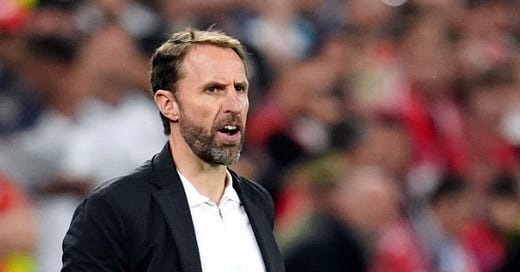



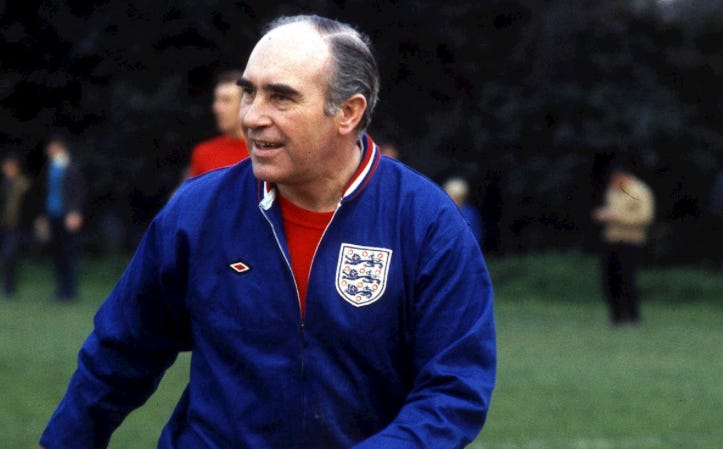
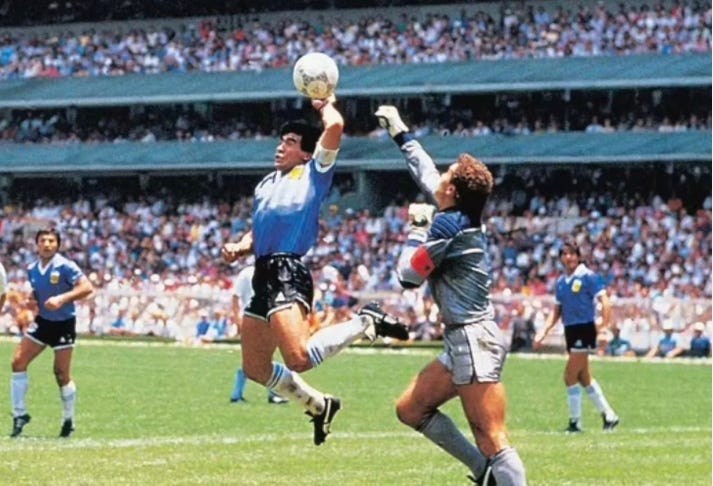
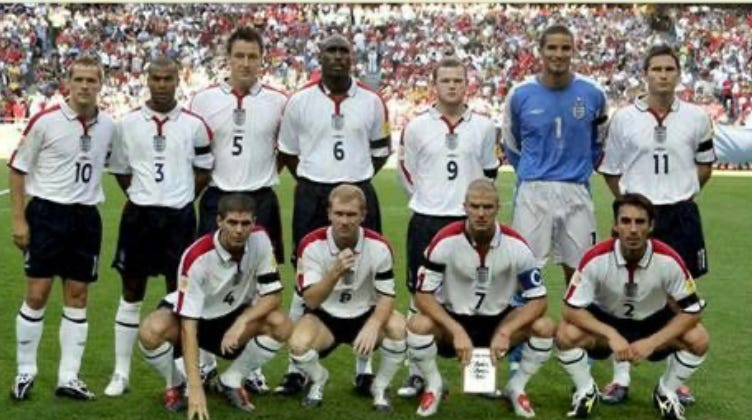
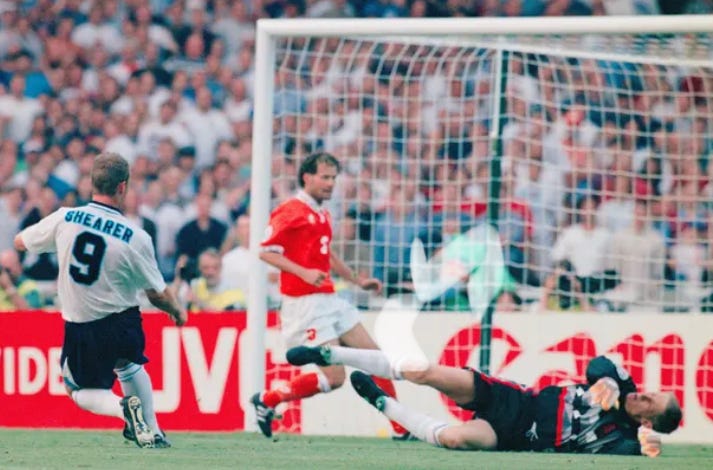

This was for me the best analysis by far of Southgate/England post-mortems, significantly more analytical and measured than those of the usual professional pundits; the one little typo was also hilarious-keep up the high standard of this blog Sam. G